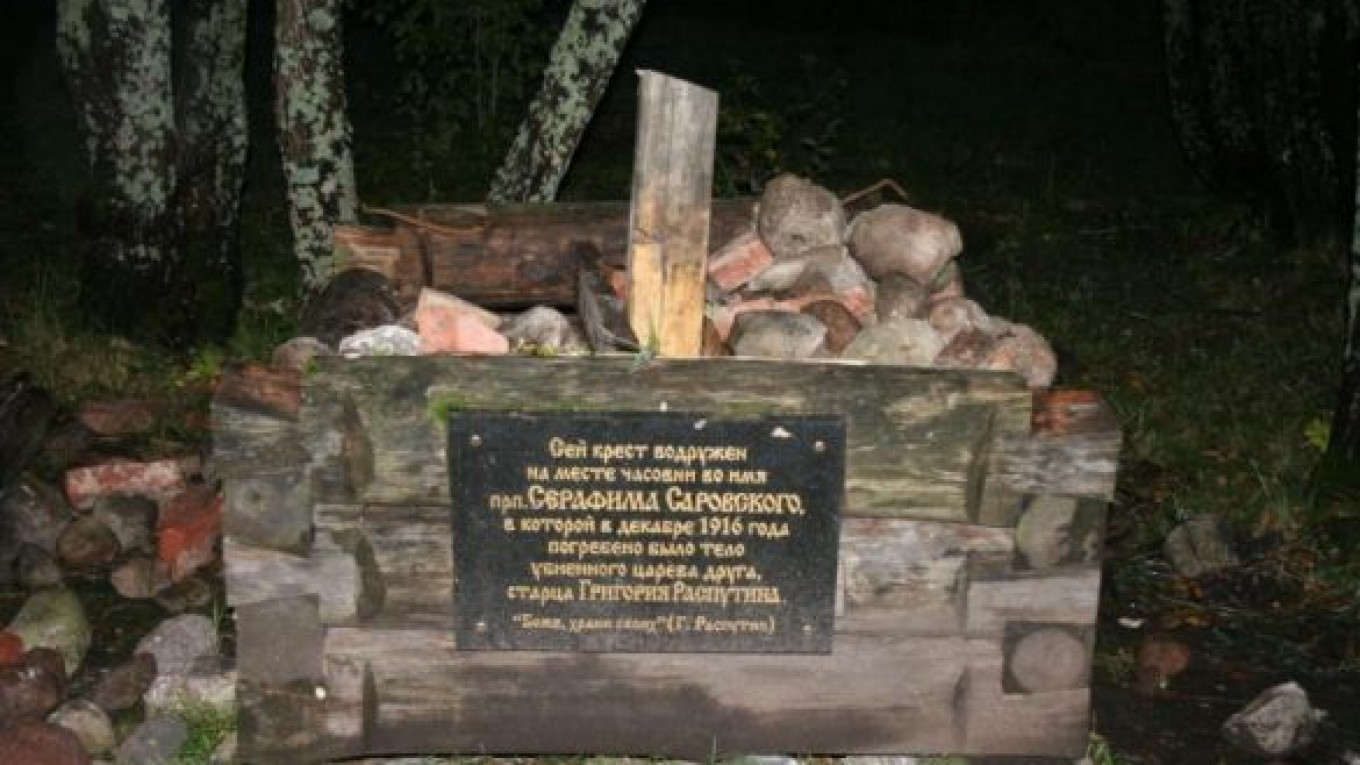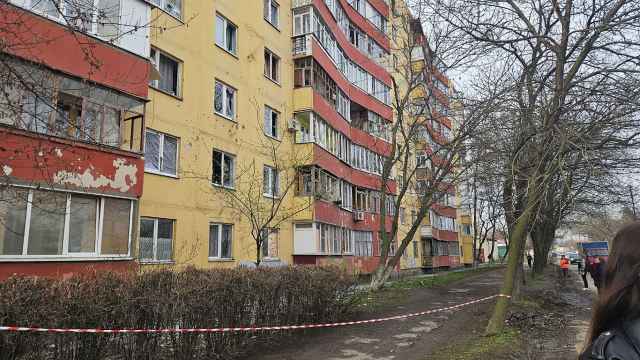Unidentified vandals attacked a wooden cross dedicated to Orthodox mystic Grigory Rasputin on the grounds of former imperial palace Tsarskoye Selo, outside St. Petersburg.
Security guards on the estate, now an open-air museum, told Interfax that the vandals had taken a saw to the memorial Monday and that the damaged cross had been moved to the museum for safekeeping.
The guards said they were not responsible for looking after the memorial because it was mysteriously erected on the edge of the estate seven years ago without the permission of museum authorities.
Rasputin, who acquired a reputation as a psychic and faith healer in the early 20th century and became a close adviser to the wife of the last tsar, Nicholas II, is a controversial figure, and a definitive account of his murder in 1916 in St. Petersburg’s Yusupov Palace remains elusive.
After his death, the imperial family allowed Rasputin to be buried in a bell tower at Tsarskoye Selo, but his remains were later removed, burned and scattered elsewhere after the 1917 Revolution.
Monday’s attack on the memorial follows two cross-felling episodes in recent weeks. Earlier this month, vandals chopped down one Orthodox cross in the Altai republic and nine in the Leningrad region.
President Vladimir Putin on Tuesday said attacks on religious traditions showed that the Russians were losing spirituality.
“There are losses of Christian clergymen and of other confessions. Very recently there was yet another crime committed against a spiritual leader in Dagestan. What does this mean? It means, unfortunately, that there is a substantial loss of our national spiritual code. It’s worrying,” Putin told the presidential cultural council, Interfax reported.
Related articles:
A Message from The Moscow Times:
Dear readers,
We are facing unprecedented challenges. Russia's Prosecutor General's Office has designated The Moscow Times as an "undesirable" organization, criminalizing our work and putting our staff at risk of prosecution. This follows our earlier unjust labeling as a "foreign agent."
These actions are direct attempts to silence independent journalism in Russia. The authorities claim our work "discredits the decisions of the Russian leadership." We see things differently: we strive to provide accurate, unbiased reporting on Russia.
We, the journalists of The Moscow Times, refuse to be silenced. But to continue our work, we need your help.
Your support, no matter how small, makes a world of difference. If you can, please support us monthly starting from just $2. It's quick to set up, and every contribution makes a significant impact.
By supporting The Moscow Times, you're defending open, independent journalism in the face of repression. Thank you for standing with us.
Remind me later.






